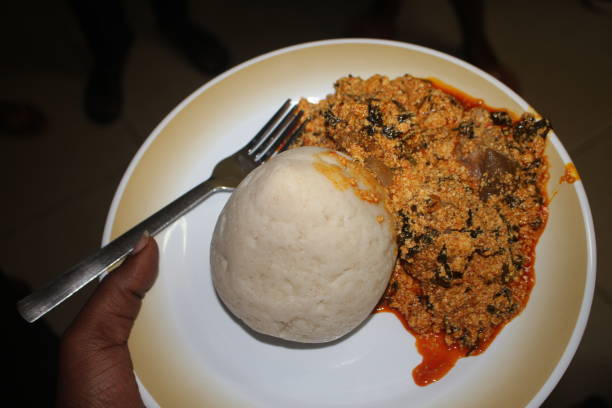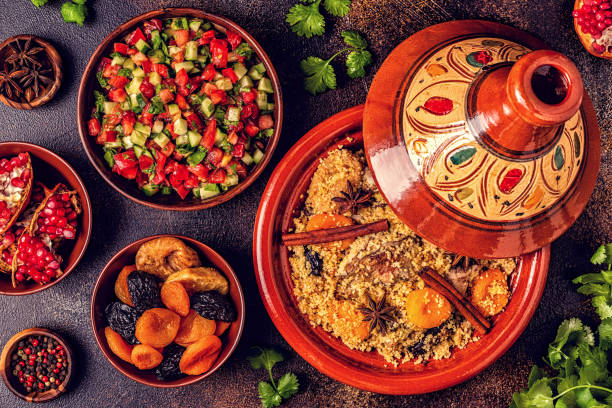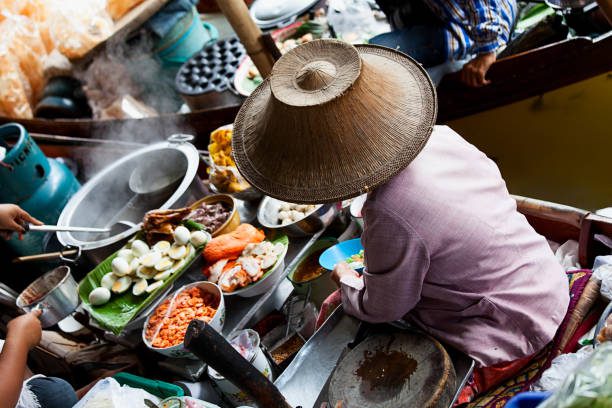This content is for informational and educational purposes only. Always consult a qualified healthcare provider.
I’m Nigerian, of course I didn’t grow up eating salad.
My version of a “balanced diet” was swallow that looked like a murder weapon, egusi with too much palm oil, and two big balls of beef. No kidding LOL!


If the stew had maggi, we were fine. If there was meat, even better. “Healthy” was not and is still not in our vocabulary, surviving was.
So tell me why, in my twenties, I’m suddenly feeling guilty for not putting chia seeds on avocado toast?
📋 Table of Contents
The Key Takeaway.
Food is never just food. It’s memory, culture, trauma, rebellion and survival. And every country, every family, every plate you’ve ever eaten from, they all left fingerprints on your nutrition. If you don’t understand the cultural why, you’ll never fix the nutritional how.
Before We Talk About Nutrition, Let’s Talk About Shame.
Most of us were raised to believe food was either sacred… or sinful.
- Sacred when it was served hot, on a tray, to guests.
- Sinful when you wanted more than one piece of meat.
- Sacred when it was cooked by grandma with stories in the pot.
- Sinful when you “ate too much” or “got fat.”
Nobody says listen to your body. They tell you to follow the rules.
- Finish your plate.
- Don’t waste food.
- Eat what you’re given.
- Don’t eat like a goat.
- “Ah ah, you again?? You’ve eaten three times today!”
And suddenly you grow up in a new world, maybe in a new country, surrounded by words like portion control, plant-based, detox, superfood, and you’re like… “Where was all this when I was force-fed pap with tears running down my face??”
Cultural Influences on Food and Nutrition Across Countries.


Culture tells you how to eat before science ever does.
You don’t even know you’ve been programmed. You think you’re just “used to it.” But the truth is, we eat the way we eat because we were taught to, not because it’s good for us.
- In Nigeria, meat means respect. If your jollof doesn’t have meat, are you even okay?
- In Japan, people stop eating before they’re full. It’s called Hara Hachi Bu. That would NEVER fly in a Nigerian household.
- In France, food is slow, sensual, shared. Like a love letter. While in America? It’s fast, salty, and eaten behind a steering wheel.
- In India, spices aren’t just taste, they’re medicine.
- In the West, spices are optional. Or feared.
Different countries = different food identities.
And let’s be real… most “healthy eating” trends come from cultures that don’t have the same food traumas we do.
Some of us are eating from a place of scarcity, not hunger.
- Raise your hand if you were poor growing up.
- Raise your other hand if you now feel guilty for wanting more.
Now clap, because that’s the sound of generational food trauma.
When you grow up with just enough, your body learns to hoard, emotionally and physically. That’s why some of us binge when we’re anxious. Or overeat even when we’re not hungry. It’s not because we’re weak. It’s because food used to mean safety. Comfort. Escape.
So when wellness culture tells you to “just have a smoothie” instead of a full meal, your body screams, “Is this war again??”
Food privilege is real, and nobody talks about it.
You see a girl on TikTok making green juice with spirulina and imported flaxseed, and you think, “I must be lazy.”
Nope.
You’re just not rich. Or white. Or living in a country where avocado doesn’t cost an arm and a leg.
In many cultures, eating healthy is a luxury. Especially when:
- Healthy eating is ridiculously expensive.
- Your entire street sells junk food but no vegetables.
So don’t let anyone shame you for choosing survival over aesthetics.
You can’t “eat healthy” until you unlearn what food meant to you.
Before you start counting calories or cutting carbs, ask yourself:
- What did food mean in my childhood?
- Was food used to punish or reward me?
- When do I crave the most and why?
- What am I actually feeding when I eat?
Sometimes it’s not hunger. Sometimes it’s loneliness in disguise.
The way we judge other people’s food is mad disrespectful.
“Ew! You eat that?”
That’s cultural ignorance on steroids.
- Your okra soup might disgust a Scandinavian.
- Their pickled herring might traumatize you.
But guess what? We all eat what our mothers fed us. That doesn’t make us weird.
- So stop judging people who fry plantains with sugar.
- Stop mocking people who eat “weird foods.”
- Stop thinking something is “basic,” it’s home to someone.
Food is identity, and identity is layered.
If you’re African living in Europe, or Asian in America, or just someone who’s migrated emotionally from their childhood, your plate is now confused. And that’s okay.
- You might eat akara for breakfast and Greek yogurt for lunch.
- Fufu one night, quinoa the next.
That doesn’t make you fake. That makes you a fusion. A buffet of cultures. Own it.
You can love your culture and still eat better.
Our food is not the enemy. The enemy is how we cook it, how much we eat, and what we believe it says about us.
- Egusi is not “bad.”
- Eating five wraps of pounded yam every night without moving your body? That’s what’s hurting you.
You don’t have to become someone else to be healthier. You just have to wake up and eat like you respect yourself and your roots.
No one’s talking about emotional bloating. So I will.
You know that heaviness you feel after a “comfort meal”? That’s not just food. That’s:
- Guilt.
- Shame.
- Regret.
- Comparison.
- Your auntie’s voice in your head saying, “You’ve added weight o.”
Sometimes we’re not bloated from beans. We’re bloated from beliefs.
Food rules are fake. Cultural truths are not.
Every diet trend is someone else’s tradition repackaged. Think about it:
- Keto is just a rich person’s version of what poor people did to survive.
- Intermittent fasting? That’s how most of us lived when there was no food.
- “Eat fresh, local, seasonal?” That’s literally how your grandma cooked.
So don’t think you’re behind. You’ve been ahead. They just renamed it.
Your plate tells your story. So rewrite it with love.
You’re allowed to:
- Eat jollof and still care about your health.
- Love garri but choose oats when you need energy.
- Add veggies to your soup without feeling like a traitor.
You are not a food trend.
It’s not just about what you eat. It’s about what your food says about you. And if you’ve never sat with that truth, really sat with it, you’ll keep trying to diet your way out of an identity crisis. Eat well. But first, eat honestly.
Love,
Someone who grew up thinking Ribena was fruit juice.

